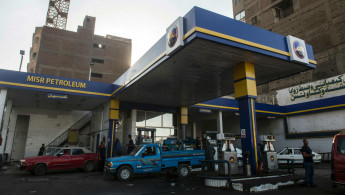Egypt petrol prices hiked in punishing austerity drive
Egypt announced a new sharp increase in fuel prices as it continued to slash government subsidies in a tough IMF-backed reform programme.
The cuts to fuel subsidies will increase domestic prices by between 16 and 30 percent, Reuters reported.Egypt's government has introduced a range of other cuts on public spending as part of $12 billion bail-out loan from the IMF that Cairo secured in 2016.
The energy sector, which accounts for 20 percent of Egypt's budget in recent years, has seen significant cuts.
Nearing the end of the IMF-led economic reform programme, the cuts are expected to put added economic pressure on the many Egyptians who are already struggling under austerity.
The measures will bring fuel prices in line with their real cost, Reuters reported. Egypt informed the IMF fuel subsidies would be entirely removed by 15 June.
Egypt has been steadily increasing fuel prices over the past four years.
As part of the controversial measures, Egypt's electricity minister announced a further price rise to electricity prices in May.
Electricity prices were raised by an average of 26 percent last July and by 40 percent in July 2017.
The economy of the Arab world's most populous country has been hit by political instability and security threats since the 2011 uprising that ousted leader Hosni Mubarak.
Egypt enacted stringent austerity measures shortly after general-turned-president Abdel Fattah al-Sisi came to power in a coup in 2014. The measures have hit poor and middle-class Egyptians especially hard.
Living costs have soared, both due to subsidy cuts on essentials such as fuel and on the back of Egypt in 2016 devaluing its currency.
Unemployment has decreased slightly, but wages remain woefully low.
Earlier this month, the IMF praised Cairo for "achieving macroeconomic stabilisation" and said it was on track to disburse the final $2 billion of the bailout loan.
In November 2016, Egypt reached an agreement with the IMF for a $12 billion loan package to be delivered in tranches.
In return, Egypt would have to implement certain conditions such as liberalising the exchange rate, gradually abolishing subsidies on basic commodities, and significantly reducing the number of those employed by the government in public administration
Agencies contributed to this report.
Follow us on Twitter: @The_NewArab





 Follow the Middle East's top stories in English at The New Arab on Google News
Follow the Middle East's top stories in English at The New Arab on Google News


